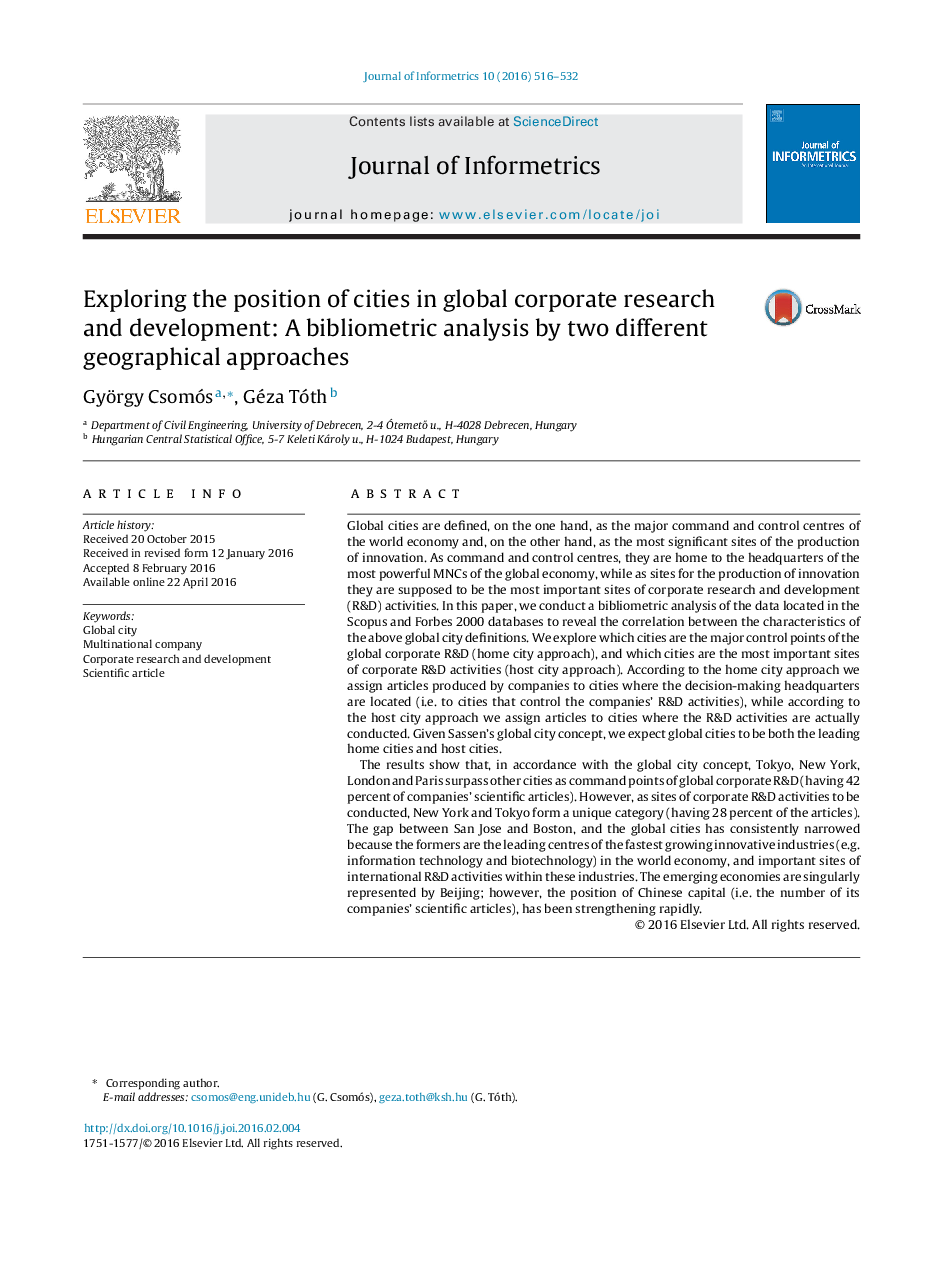| Article ID | Journal | Published Year | Pages | File Type |
|---|---|---|---|---|
| 523370 | Journal of Informetrics | 2016 | 17 Pages |
•We put global city theory to the test by conducting a bibliometric analysis.•We explore cities as home cities and host cities of the global corporate R&D.•Tokyo, New York, London and Paris exceed as command points of global corporate R&D.•Boston and San Jose are significant sites of corporate R&D activities.
Global cities are defined, on the one hand, as the major command and control centres of the world economy and, on the other hand, as the most significant sites of the production of innovation. As command and control centres, they are home to the headquarters of the most powerful MNCs of the global economy, while as sites for the production of innovation they are supposed to be the most important sites of corporate research and development (R&D) activities. In this paper, we conduct a bibliometric analysis of the data located in the Scopus and Forbes 2000 databases to reveal the correlation between the characteristics of the above global city definitions. We explore which cities are the major control points of the global corporate R&D (home city approach), and which cities are the most important sites of corporate R&D activities (host city approach). According to the home city approach we assign articles produced by companies to cities where the decision-making headquarters are located (i.e. to cities that control the companies’ R&D activities), while according to the host city approach we assign articles to cities where the R&D activities are actually conducted. Given Sassen's global city concept, we expect global cities to be both the leading home cities and host cities.The results show that, in accordance with the global city concept, Tokyo, New York, London and Paris surpass other cities as command points of global corporate R&D (having 42 percent of companies’ scientific articles). However, as sites of corporate R&D activities to be conducted, New York and Tokyo form a unique category (having 28 percent of the articles). The gap between San Jose and Boston, and the global cities has consistently narrowed because the formers are the leading centres of the fastest growing innovative industries (e.g. information technology and biotechnology) in the world economy, and important sites of international R&D activities within these industries. The emerging economies are singularly represented by Beijing; however, the position of Chinese capital (i.e. the number of its companies’ scientific articles), has been strengthening rapidly.
